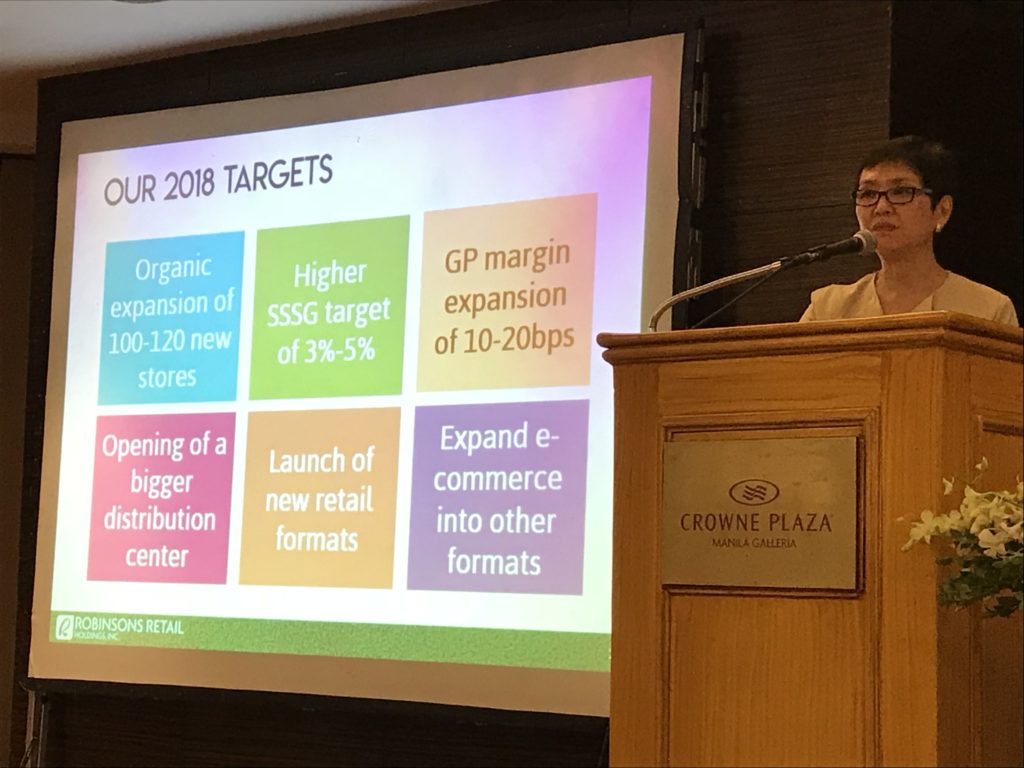
RRHI president Robina Gokongwei-Pe during the company’s stockholders meeting on May 28, 2018
Gokongwei-led Robinsons Retail Holdings Inc. (RRHI) has earmarked up to P3.5 billion for capital spending this year, mostly for the organic expansion of its multi-format store network amid favorable prospects for the consumer sector.
RRHI president Robina Gokongwei-Pe reported to the company’s stockholders meeting on Monday that the group would have a net addition of 100 to 120 new store across various format this year.
Specifically, RRHI is opening 12 supermarkets, three department stores, 10-15 do-it-yourself (DIY) stores, 20-30 convenience stores, 25-30 Southstar drugstores and 30-35 specialty stores. These are on top of 100 new franchise stores from generic drugstore chain TGP (The Generics Pharmacy).
In 2017, RRHI spent a total of P3.1 billion for capital outlays equivalent to 2.7 percent of net sales. In the first quarter of this year, its capital expenditures amounted to P683 million or 2.4 percent of net sales.
As of end-March, RRHI operated a total of 1,715 stores across various formats plus 2,031 franchised TGP branches. It had 489 convenience stores under Ministop brand, 487 drugstores, 341 specialty stores, 154 supermarkets, 49 department stores and 195 DIY stores.
In the first quarter, RRHI’s same store sales growth (SSSG) was at 6.4 percent. For the full year, SSSG growth is targeted at 3-5 percent. Margins are expected to improve by 10 to 20 basis points.
RRHI also plans to open a bigger distribution center and launch new retail formats.
This year, Gokongwei-Pe said RRHI would benefit from continued economic growth, primarily driven by public sector infrastructure spending alongside strong domestic consumptions and exports. She said the passing of the Tax Reform for Acceleration and Inclusivity (TRAIN) law would also have a positive effect on consumption, with the broad middle-income market having increased take-home pay.
“The retail sector is seen as the primary beneficiary of the program, as higher disposable income is likely to boost discretionary spending,” she said.
Meanwhile, Gokongwei-Pe said technological trends would continue to affect the retail space.
“Social media, e-commerce, and cashless and digital economies are on the rise and continue to redefine accessibility for new markets to participate in consumption,” she said.